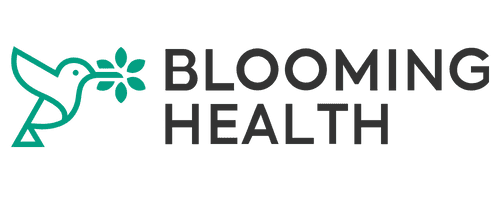May 8, 2025
At Blooming Day 2025, Dr. Chelsea Clinton, Co-Founder of Metrodora Ventures, and Vice Chair for the Clinton Foundation, returned to the stage not as the interviewee, but as the interviewer—welcoming Chiquita Brooks-LaSure, Former Administrator of the Centers for Medicare & Medicaid Services (CMS) and Senior Fellow at The Century Foundation, for a thoughtful, urgent discussion on the future of health and social care in America.
Chelsea opened with a message of admiration and gratitude, acknowledging Chiquita’s leadership during the Biden Administration and her pivotal role in achieving the lowest uninsured rate in U.S. history.
Medicaid at a Crossroads
During her time at CMS, Brooks-LaSure helped strengthen and expand Medicaid, especially as a lifeline for working families, children with complex needs, and aging adults in long-term care.
But she issued a clear warning: “We’re now entering a period of really having to defend Medicaid again.”
While Medicaid was once seen as a safety net for low-income populations, she emphasized that it’s become essential to the middle class, especially for Gen Xers juggling care for both parents and children. The 1115 waivers, including New York’s, allowed states to innovate and address broader social needs. But now, the program faces political headwinds—from red tape to proposed work requirements that risk unraveling access.
“What we’ve seen,” she said bluntly, “is that you’re spending a whole lot of money to worry about 5 to 6% of people. And we’re in danger of keeping 95% of people out of coverage that they need.”
Tech That Helps—or Hurts
Dr. Clinton steered the conversation toward a core tension in healthcare: technology as a tool for efficiency vs. a barrier for the underserved.
Brooks-LaSure didn’t sugarcoat the problem. Eligibility systems in many states, she said, are still built in ancient languages like COBOL or Fortran. “Do they even teach those anymore?” she joked. But behind the humor was urgency: outdated tech infrastructure is failing the very people Medicaid is meant to serve.
She pointed to a fundamental truth: “It’s really challenging dealing with our healthcare system… and we’ve got to make transactions easier for people.”
From online portals that don’t work to months-long paperwork cycles, technology is often part of the friction—not the solution. For example, in states with work requirements, even people exempt from those requirements often get stuck or kicked off coverage because of system complexity.
AI, Access, and the People Left Behind
Brooks-LaSure sees enormous promise in AI, particularly for improving diagnoses, surfacing gaps in care, and helping caregivers navigate complex systems. But she cautioned against tech that only works for the most informed.
“When we take a big jump in healthcare, the people who are best informed do well—and the people who need it the most are left behind.”
She recalled visiting a community health center during the COVID-19 vaccine rollout. The director told her, “You need to talk to someone 12 times before they’ll get vaccinated.” That’s not a problem AI can solve alone.
Dr. Clinton agreed, highlighting the “heroic” providers who traveled by dog sled to remote Alaska villages. “It wasn’t defensible to say, ‘Those communities just have to wait.’” Tech, she said, may improve access—but human persistence and presence still matter.
A Vision for the Future: Simplify, Connect, and Center the Human
So where should tech be focused?
Brooks-LaSure had a few clear answers:
Fix eligibility systems so people don’t lose coverage due to avoidable bureaucracy.
Build interoperability so providers have full access to patient information—without relying on memory or guesswork.
Use AI to guide caregivers, not replace them.
She summed it up clearly: “We have to make sure we’re keeping people at the core of all this.”
At Blooming Health, we’re building the kind of tech Chiquita Brooks-LaSure and Dr. Clinton called for—tools that simplify access, close gaps, and keep people at the center of care.
Contact us today to learn more about how AI and automation from Blooming Health are supporting CBOs, social care networks, community care hubs, government agencies and healthcare systems to close the loop on referrals and make social care more accessible. Or explore our impact stories with New York State Office for the Aging, AARP Foundation, local aging offices, and more.








